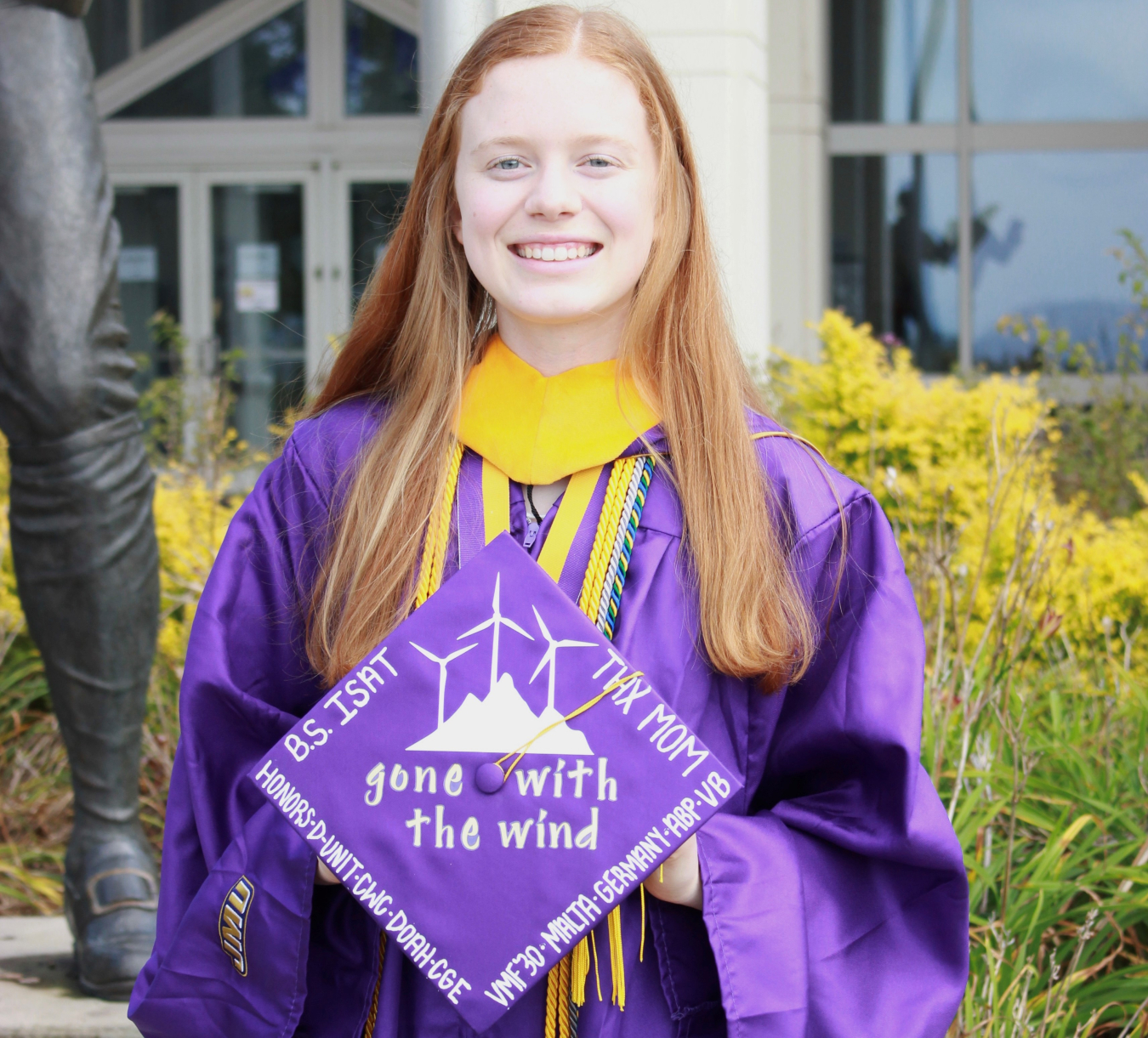2020 James Madison University grad Jamie Mears is putting her degree and her Collegiate Wind Competition experience to work at Ørsted Onshore.
January 14, 2021As the 2020 U.S. Department of Energy Collegiate Wind Competition’s (CWC’s) approached last spring, the James Madison University (JMU) CWC Team, who won the 2020 Project Development Contest, had one big advantage. Senior Jamie Mears, Siting Manager of JMU’s Project Development Contest subteam, had two previous competitions under her belt.
Mears first learned about the CWC when she was a rising sophomore at JMU and a friend told her the team was looking for members to compete in the 2018 competition. During the JMU team’s preparation for the 2018 event, Mears got her first taste of real-world wind energy project development experience.
“We created a plan for a wind project site in Virginia,” Mears said. “We were able to drive to the site to meet with the landowner, and we held a public meeting where members of the local community gathered and had an insightful conversation about wind energy in Virginia. It was such a real, relevant experience.”
Mears participated in the 2019 competition as well, but the 2020 competition gave her the chance to step into a leadership role—not only because she was a senior, but because she was the only member of the 2020 team who had participated in the competition the two years before.
“Because I was already so familiar with the CWC, I knew how to get new team members acquainted with the competition’s deliverables and requirements,” Mears explained. “And even though 2020 had so many challenges that we couldn’t control, I tried to make sure the newer students had the best experience they could.”
Mears graduated from JMU in spring 2020 with a Bachelor of Science in Integrated Science and Technology, concentrations in Energy and Sustainability Leadership, and minors in Environmental Information Systems and Honors Global Studies. She now puts that jam-packed degree to work as a project developer for Ørsted Onshore—a job she landed thanks in part to her multiple years of CWC experience.

Early in her senior year, Mears attended the Virginia Clean Energy Summit, where she ran into a 2018 alum of the JMU team who now works as a project engineer for Ørsted Onshore.
“He got my resume in front of the leadership team at Ørsted,” Mears recalled. “They knew he and I were connected through the CWC, which made it easy to talk about that experience during my interview. Whether it was the 2020 competition and learning how to be flexible and resilient when everything went virtual, or the 2018 competition, when we met with public officials in person and hosted community meetings, those experiences easily transferred to the job at Ørsted.”
For Mears, the CWC was an opportunity for her to dip her toes into the field of wind energy and discover her strengths and interests. She encourages students new to or considering the CWC to take the same approach.
“In the wind industry, you’ll likely specialize in one or two areas rather than the entire scope of the CWC deliverables,” she explained. “The CWC gives you a chance to narrow down what you're passionate about, which will help you better define what roles you want to highlight when you start applying for jobs.”
Mears encourages even students whose schools don’t have a CWC team to seek opportunities to gain similar types of real-world experience.
“Take advantage of your school’s resources and curriculum,” she said. “Make those connections with your teachers and your fellow students, because the energy industry is small enough that, chances are, you'll run into them again someday.”
Looking to the future, Mears hopes to use her past CWC experience and her current work in the wind industry to provide feedback and guidance to support the CWC’s continued success.
“I would not be where I am today without the hard work and perseverance of my fellow JMU CWC teammates, faculty advisors, and the competition organizers at NREL,” she said. “I am so thankful for the enriching experience I had during my three years in the CWC, and I’m excited to be able to support the CWC now as a member of the wind industry.”

